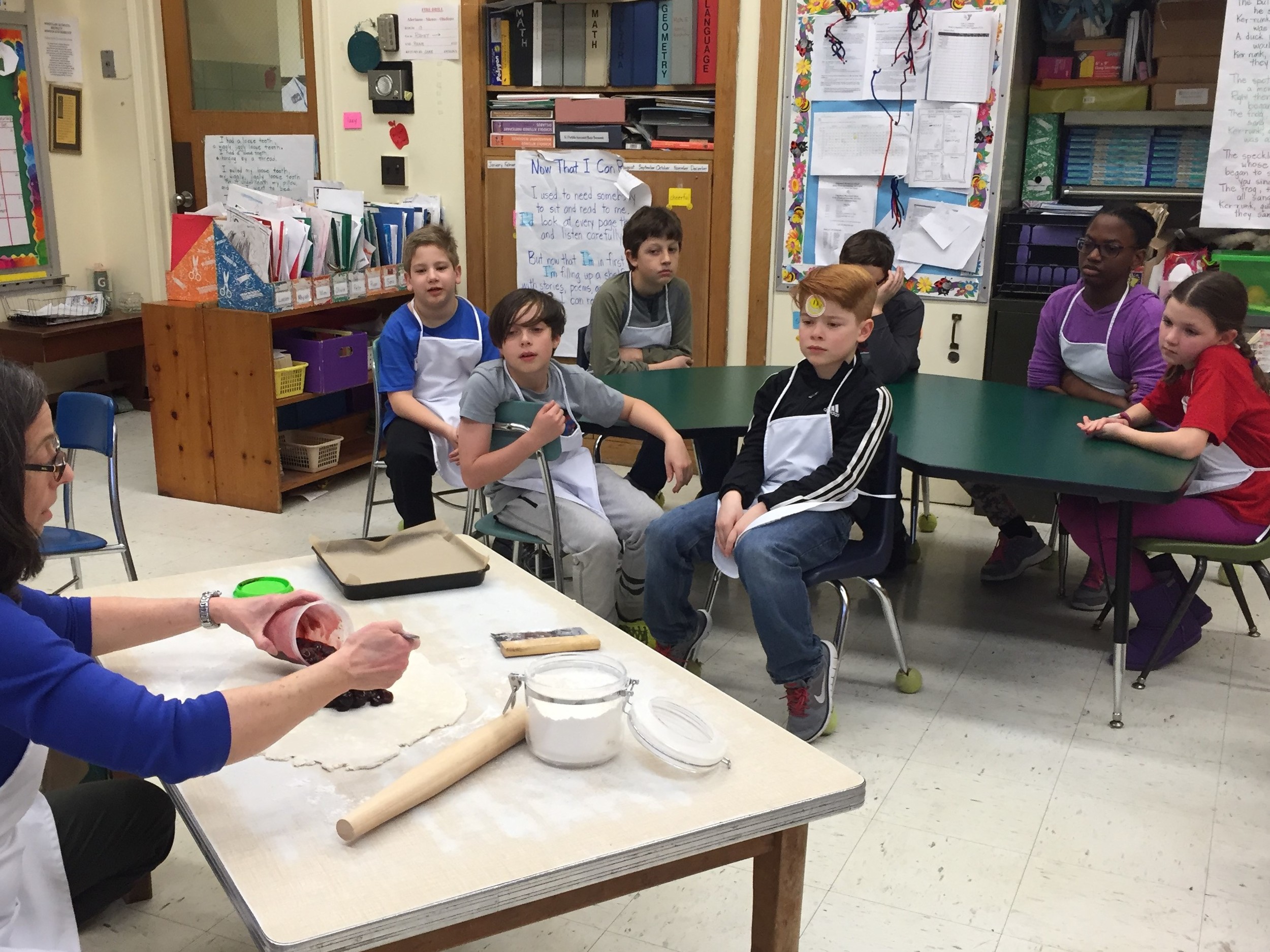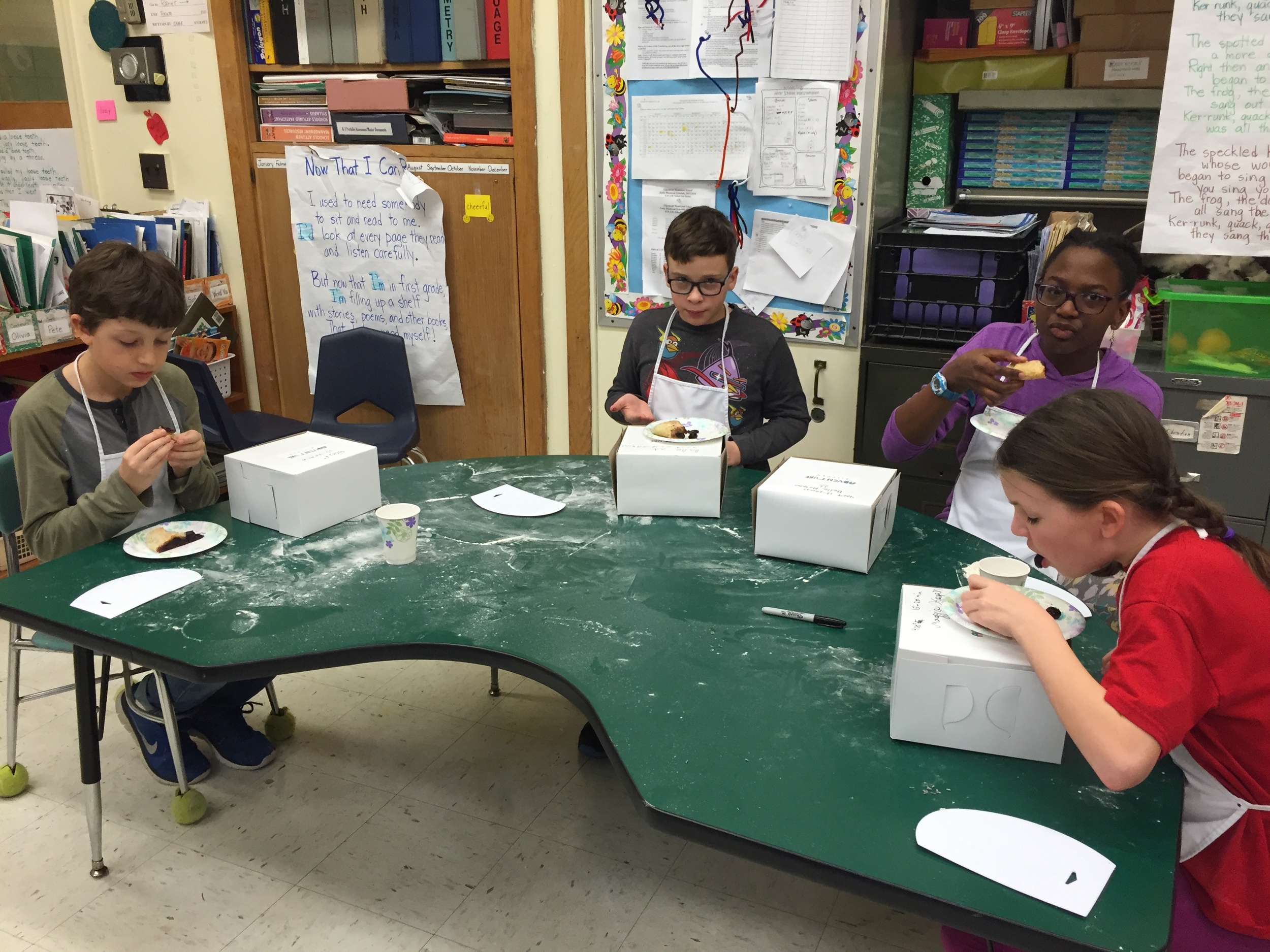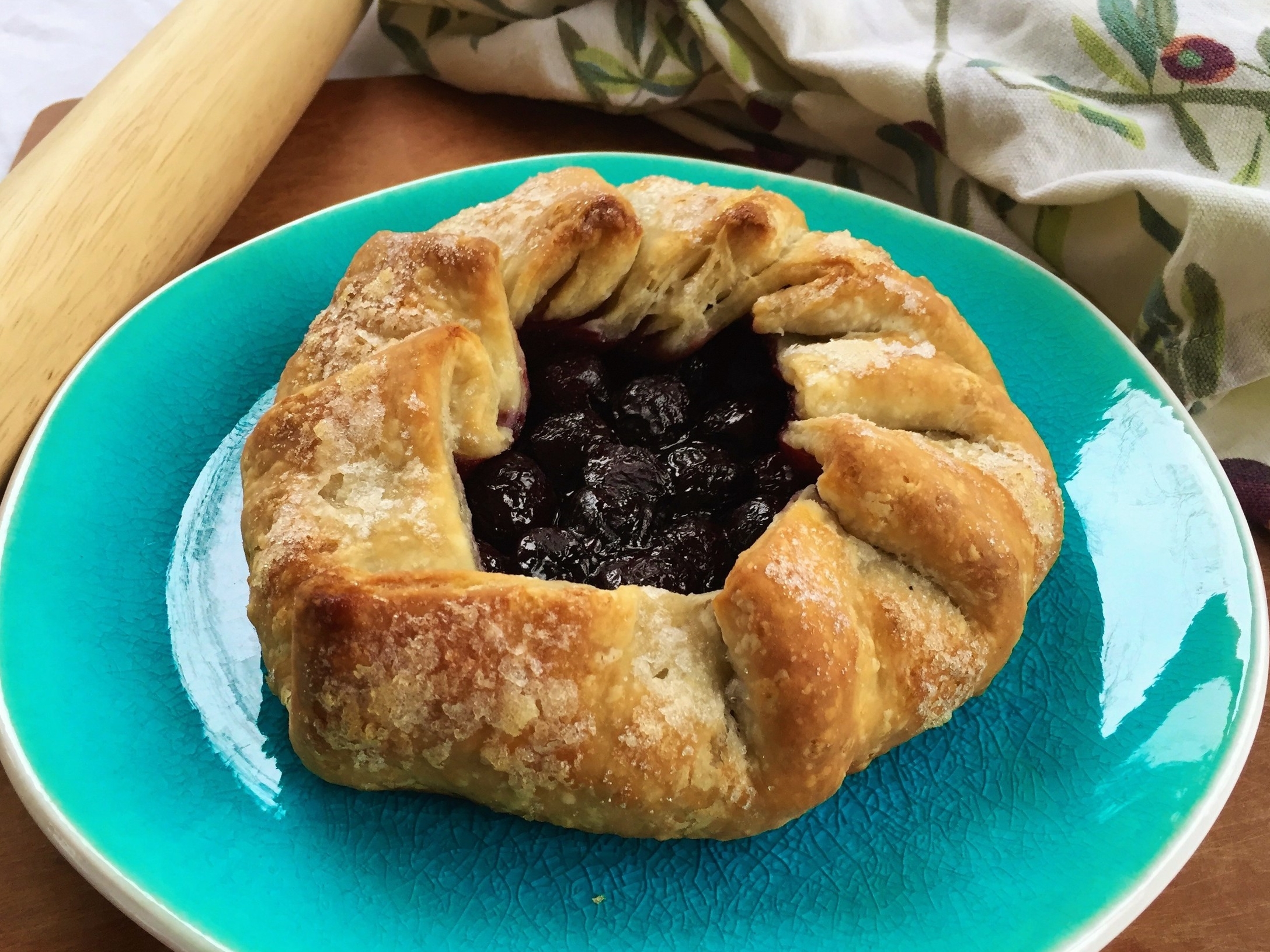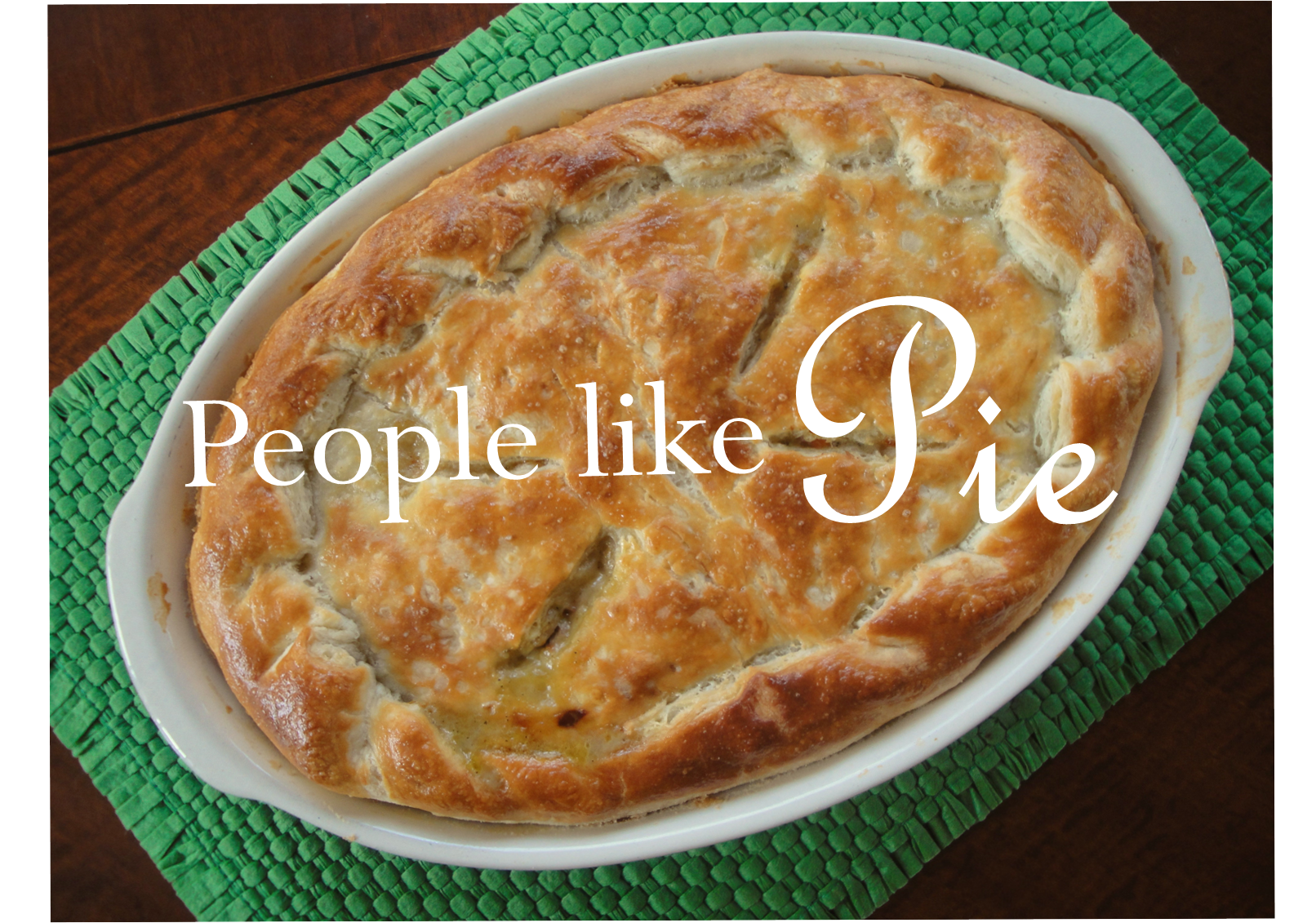
Week 2 - Galettes and the Taste of Empire
This week, we get a taste of empire. And love. And lore. And cherries.
Lavender Cherry Galette made in the Adventure Kitchen in February 2016.
I'm a crust gal. One of the best things about pie is that delicate, flaky, perfectly seasoned or sugared, golden pastry crust that envelopes all those other delicious things. Don't get me wrong; I definitely love the juicy berries, or chicken and mushrooms, or eggs and spinach, or whatever else is inside. But we can have all those delicious fillings any old day. Without the crust, it's just not pie. (If you missed it last week, here's how to make your own delectable pie crust pastry.)
I'm well aware that there are dishes in this world that call themselves pie but don't have a pastry crust, Shepherd's Pie being an obvious example. While those things are delicious and wonderful in their own way, they don't qualify as actual pie in my opinion. And since I'm the one creating this pie class, I get to make those kinds of big decisions. (I know what you're thinking, and yes, I do have a very important job.)
Pie's Origin Story
Brick oven
Back when our ancestors were hunting and gathering and preparing their meals over an open fire, they sadly had no pie. Once agriculture became established and the first primitive ovens were in use (mainly for firing pottery and baking the occasional flatbread), someone came up with the idea to wrap meat inside a flour paste and bake it in the oven instead of losing all those delicious juices over the fire. At this point, no one cared about eating the crust; it was just there to protect the meat.
Wall paining from the tomb of Ramses II.
According to Pie, A Global History by Janet Clarkson, early pie-baking was common by the time of Egyptian Pharoah Ramses II, whose tomb is adorned with paintings featuring pie. The ancient Greeks vastly improved pastry-making, spreading the practice to other Mediterranean cultures, including the Romans.
Galettes
One of the earliest pie-type dishes was a galette - a flat, rustic tart-style pie like those we are making today. Ancient Mediterranean cultures may have used honey, or berries, or other sweet fruits as the filling.
Strawberries and Cherries
This week, we have two recipes for Galettes: a fresh Strawberry Galette, which I developed for one of my first cooking classes a couple of years ago; and a Lavender Cherry Galette which I have created for this class, in the dead of winter, using frozen cherries.
Both evoke the spirit of our Mediterranean ancestors, using fruits that would have been commonly available to them.
Love and Lavender
Lavender field in Vaucluse, France (Source: Wikipedia Commons/Mimova)
Lavender was widely used by Mediterranean cultures as a perfume, an insect repellent, a healing herb, a protection from evil spirits, and in cooking. Egyptian Pharaohs and Greek philosophers pondered its scent, and Romans added it to the water in public baths, and prized it as an aphrodisiac. Cleopatra, the beautiful, brilliant and ambitious Pharaoh of Egypt, wooed first Julius Caesar and then his friend Marc Antony, all while famously perfumed with the beguiling scent of lavender.
Recipes
Lavender Cherry Galette made in the Adventure Kitchen in January 2016.
Made with cherries and a hint of lavender, this galette evokes all the delicious mystery of ancient Mediterranean civilizations.
Another delicious choice, made with fresh strawberries.
Next lesson: Quiche, Lorraine-ish
Pictures From Cooking Class
I was once honored to bring all this sophisticated deliciousness to local public school children. Check out the pictures from these cooking classes below.
Bullock School, Montclair NJ
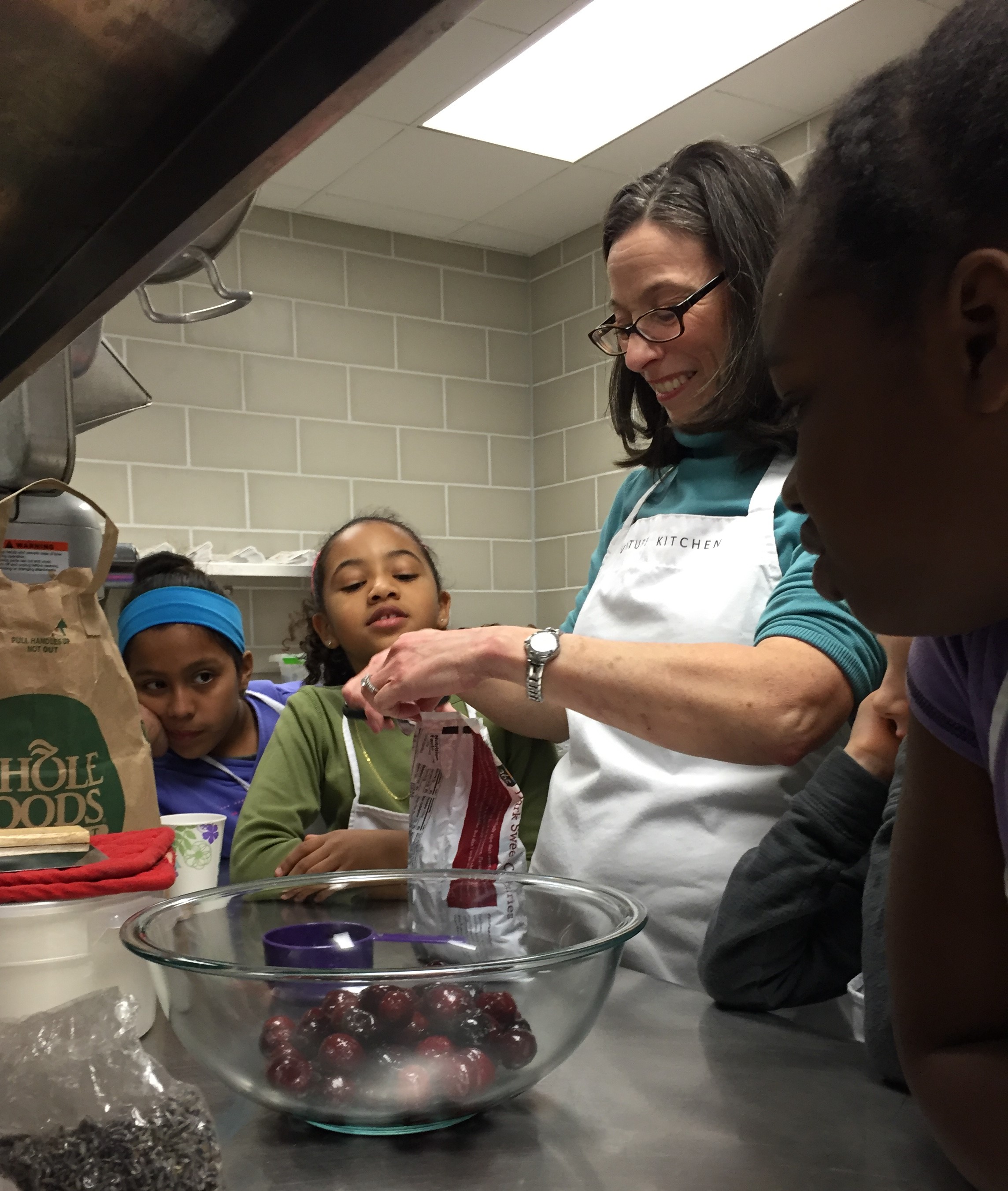
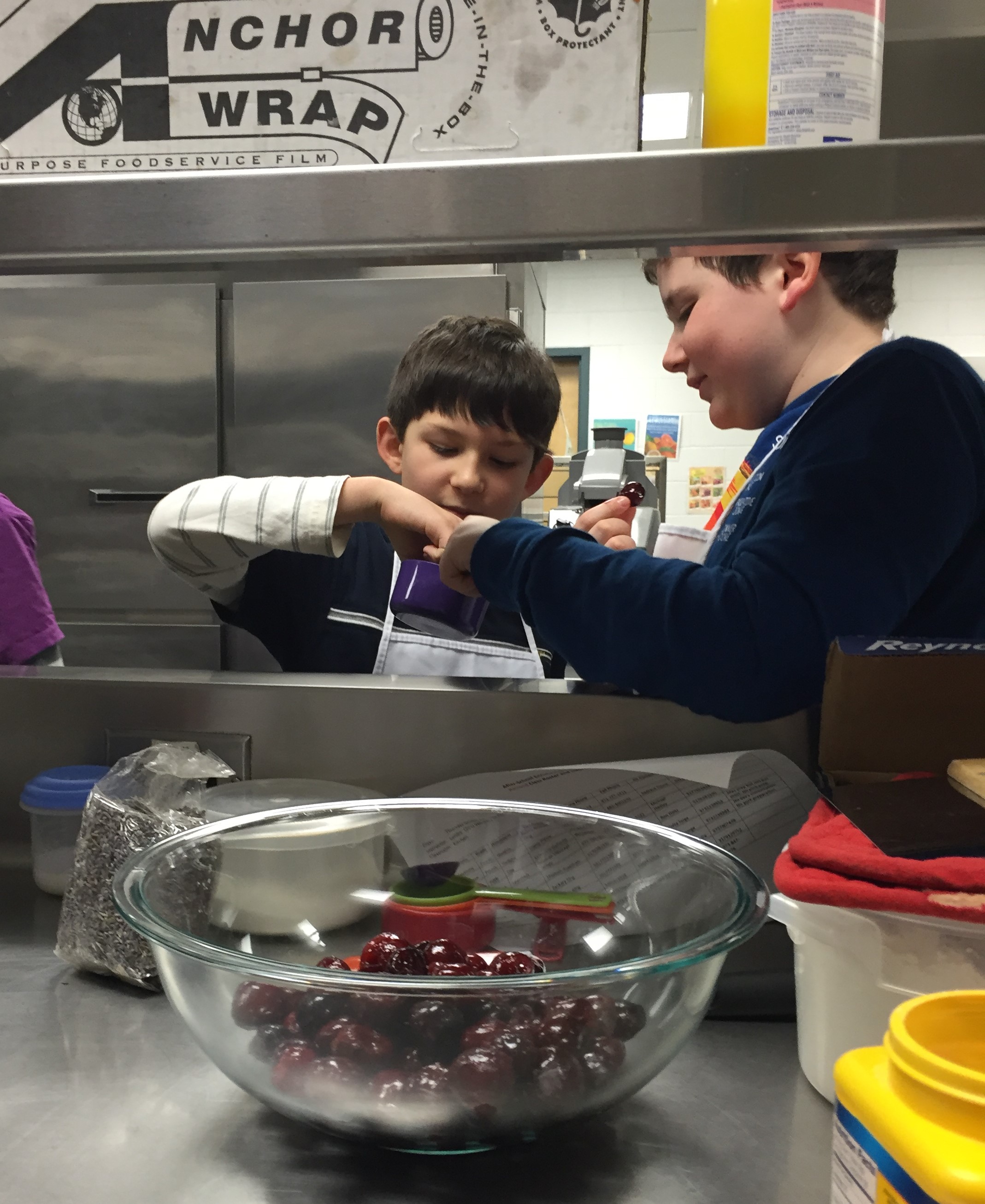
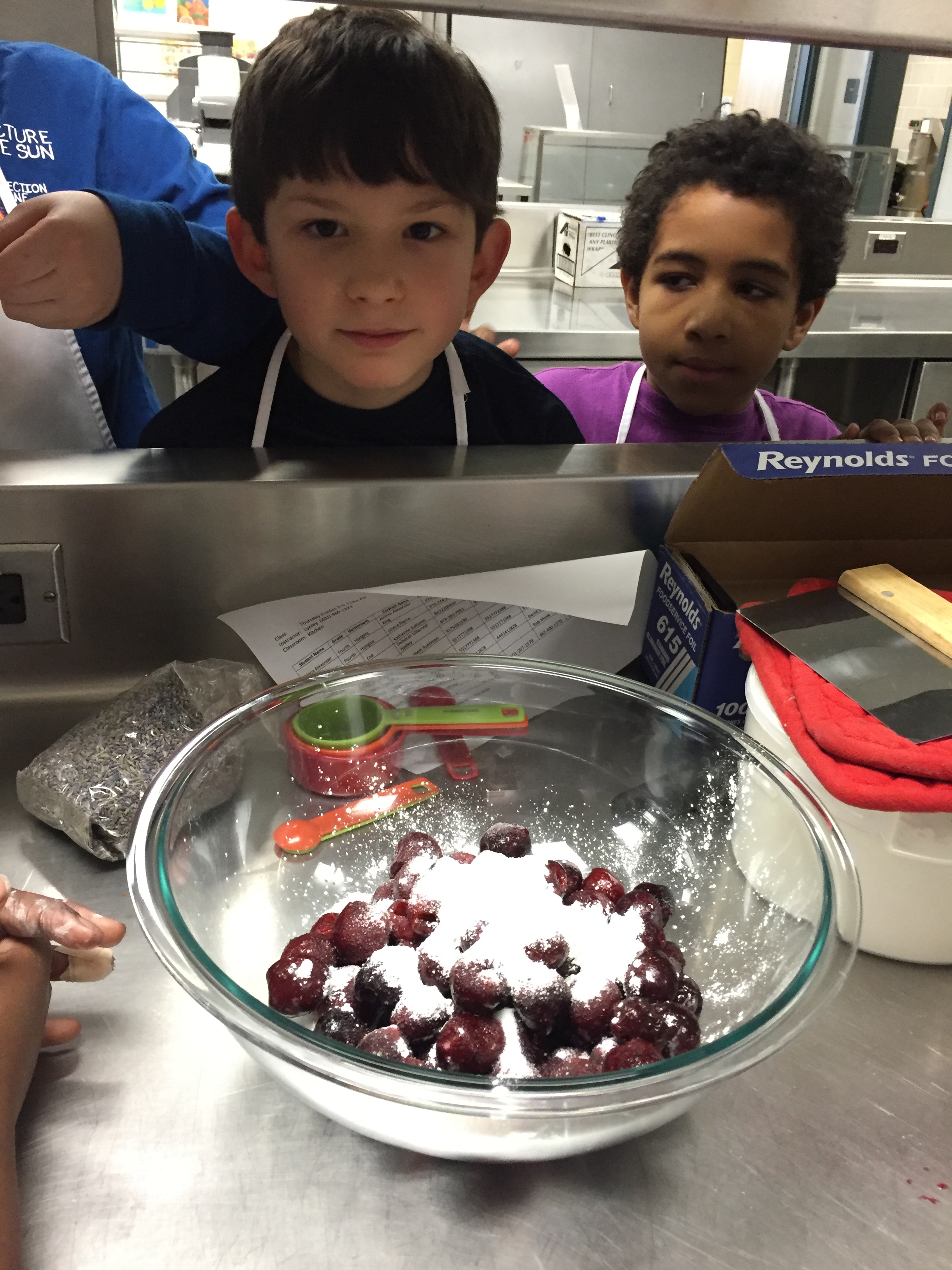

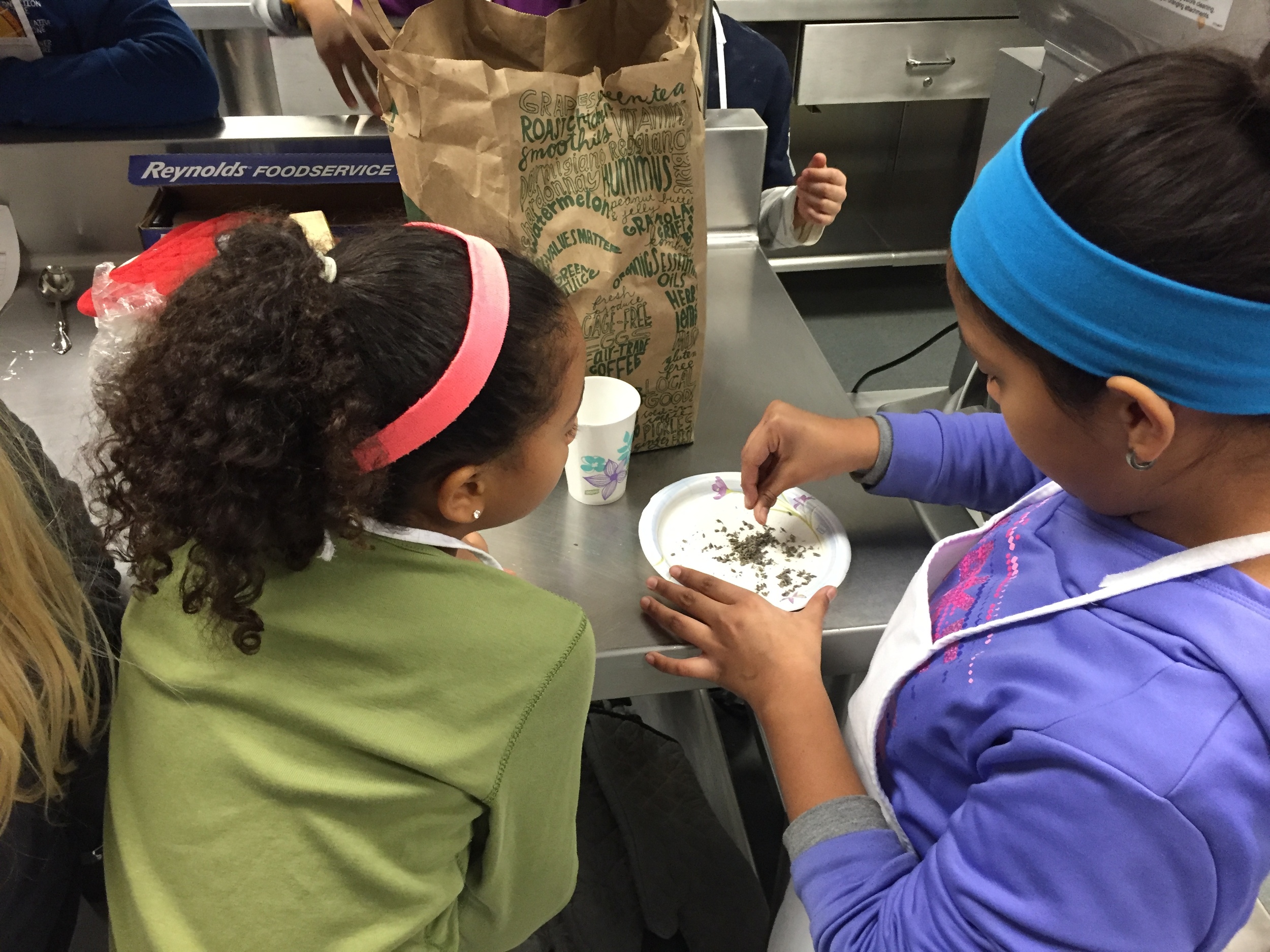
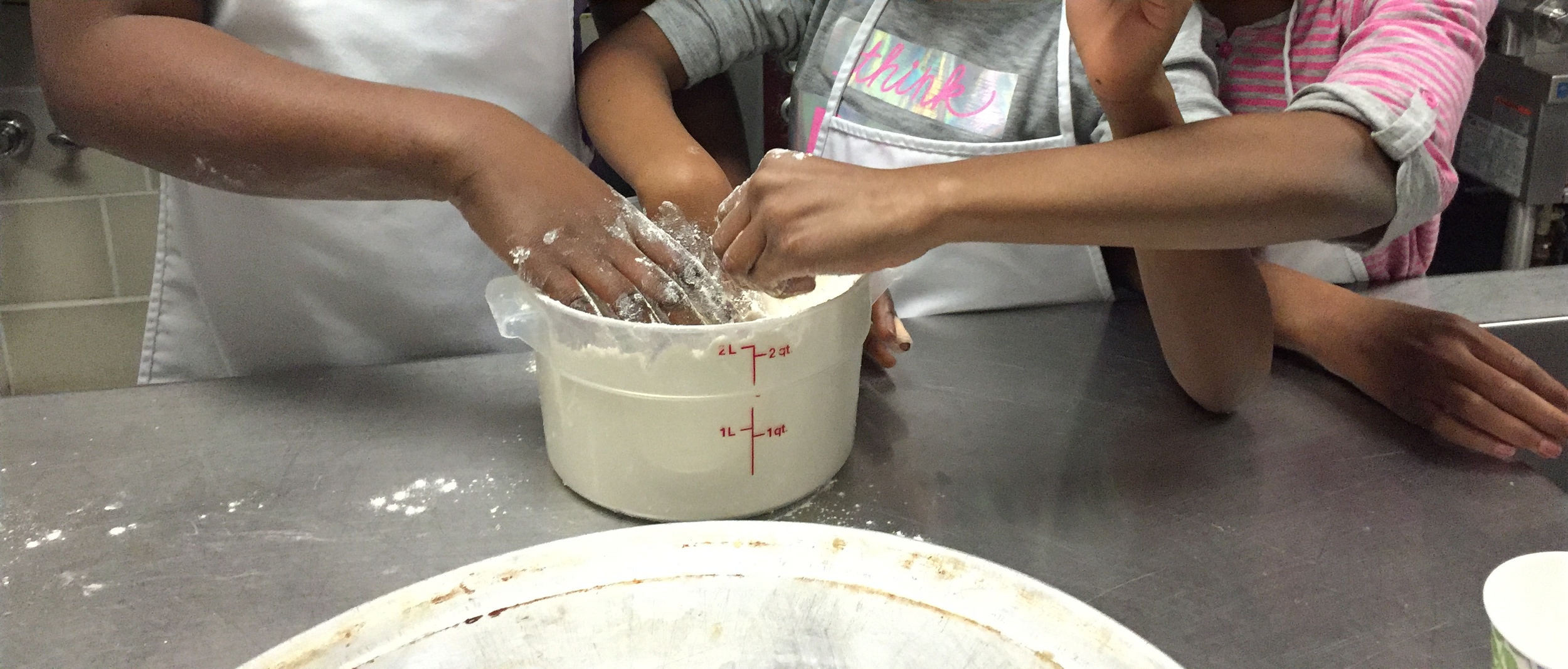
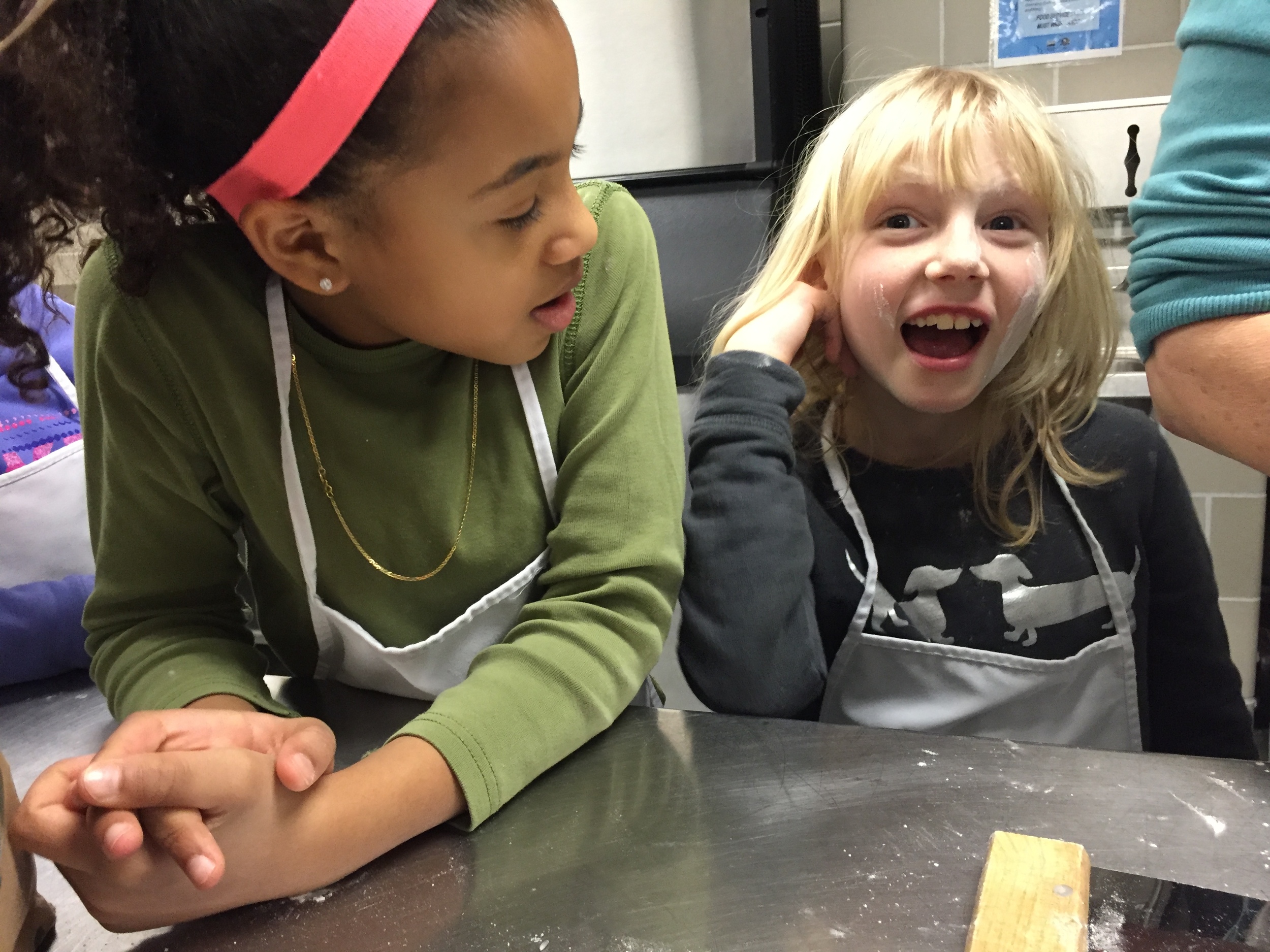

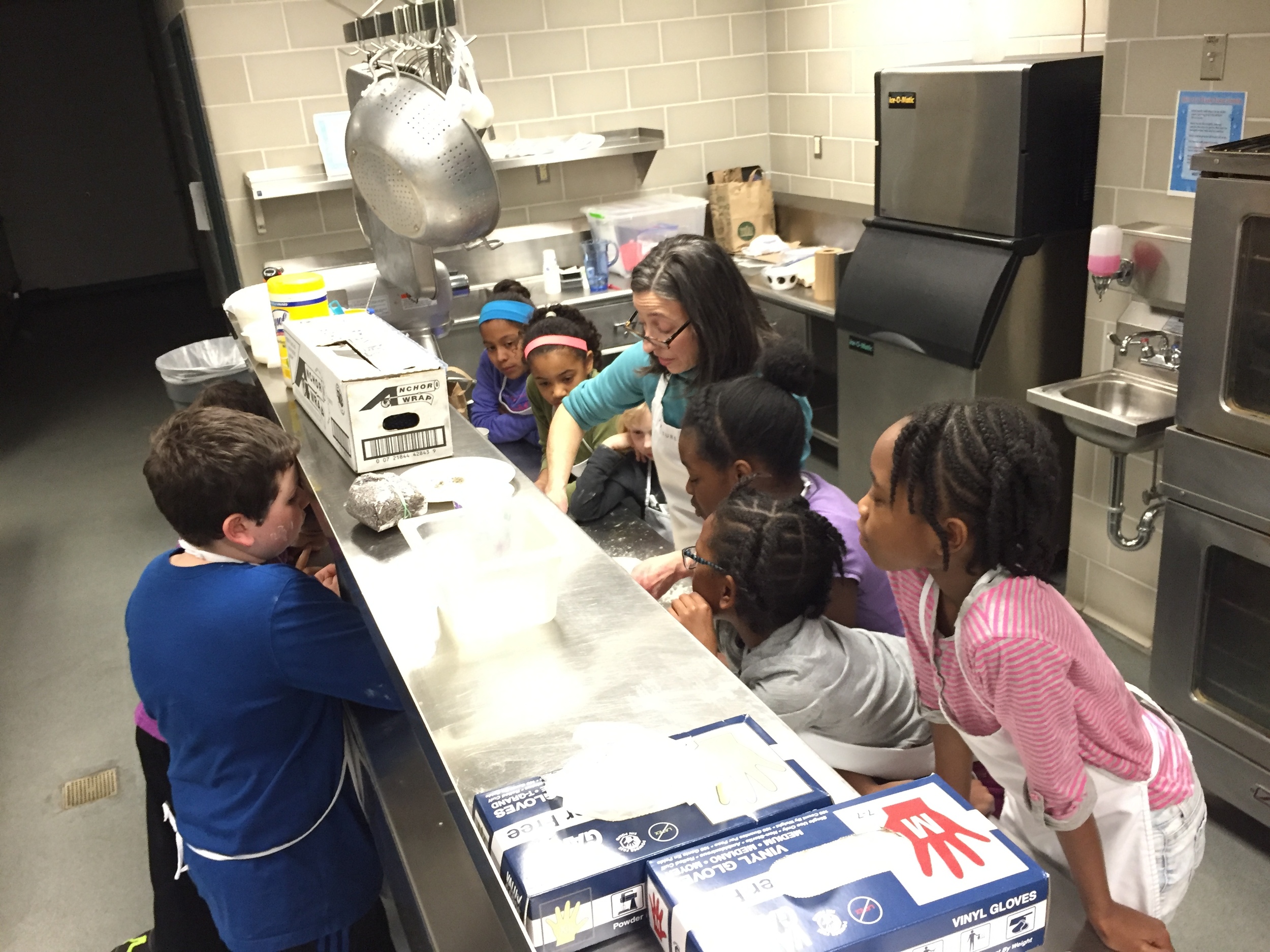

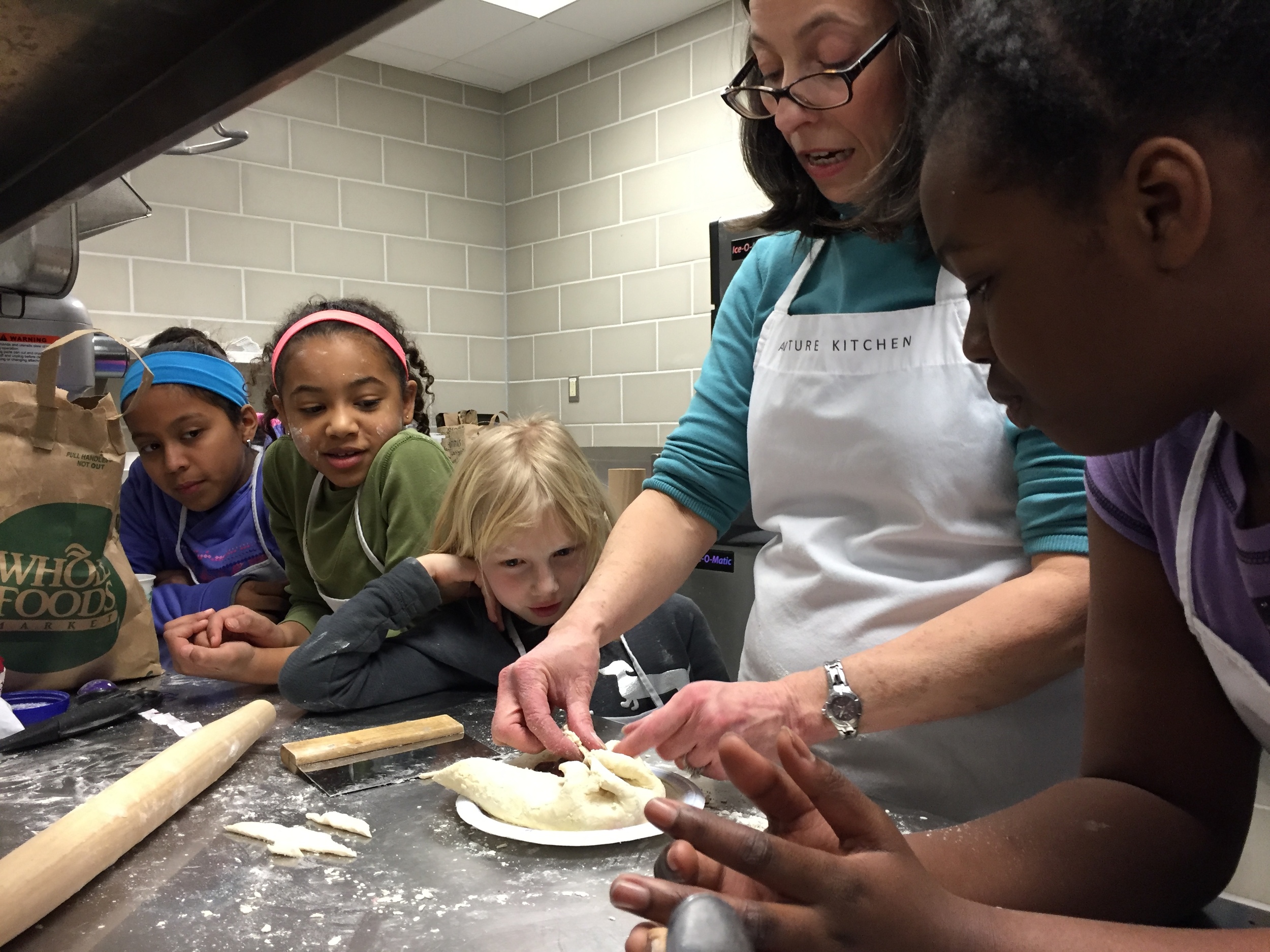




Public School, Montclair NJ
